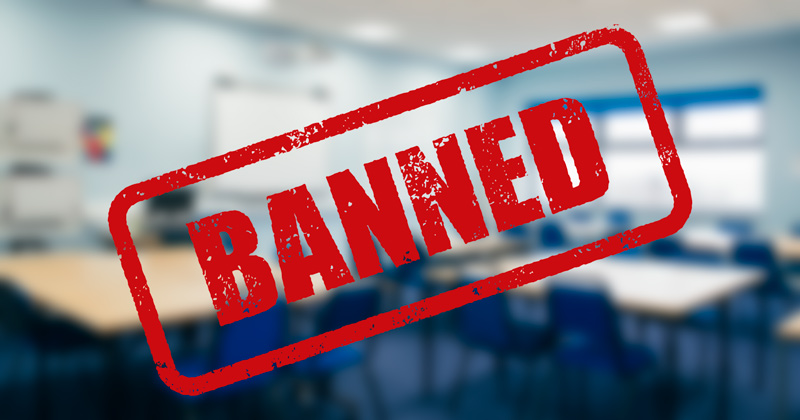A union is balloting members over what would be the biggest strike against an academy trust in a row over teacher working conditions.
The dispute comes as Labour faced criticism for “allowing trade unions to run the department [of education]” over proposals in the schools bill that would take away academy freedoms.
The National Education Union (NEU) is polling members across the Harris Federation on proposed walkouts over working conditions. Ninety-two percent of voters supported action in an earlier indicative poll that attracted an 80 per cent turnout.
It would apply across Harris’ 18 London secondary schools.
‘No longer sustainable’
Daniel Kebede, the union’s general secretary, said: “For many working in Harris schools the work is no longer sustainable. Harris needs to address the working conditions of our members and spend more money on the things our pupils really need.”
The NEU has accused Harris – one of the country’s biggest trusts – of putting “excessive and unhealthy levels of workload” of teachers and having an “unfair and punitive pay progression system”.
It also alleged “unfair treatment of Caribbean and other overseas trained teachers”.
A Harris spokesperson said the trust had negotiated for more than a year with the union, “agreeing to their requests wherever we could”.
This is despite its “pay and conditions even before the start of this process being at least as good as other multi-academy trusts and local authorities”.
The only “sticking points”, the spokesperson said, were on a NEU demand “that our academies go so far beyond what is nationally agreed for teachers in other schools that our own students’ interests are compromised”.
“Although we have engaged ACAS to provide independent conciliation support, the NEU is yet to accept our offer.
“We urge their leadership… to now do the right thing and put the interests of our thousands of deserving students ahead of their own political agenda.”
Highest-paid executives
But Kebede said “all employers make choices about where and how they spend their money”, pointing out that Harris has “the highest-paid executives in the country”.
Sir Dan Moynihan, its chief executive, earned at least £485,000 in 2022-23. Two others earned at least £230,000.
NEU analysis suggests 27 per cent of Harris teachers left at the end of summer 2023, with staff retention among the worst for nine of the past ten years.
The figures are based on government teacher retention data obtained under freedom of information laws.
Harris said the numbers were inaccurate and the rate was 25.5 per cent.
This matches Education Policy Institute (EPI) figures that show Harris’s classroom teacher turnover rates stood at 26 per cent, putting the trust among the top 20 per cent of trusts and councils for high turnover.
However, trusts in London – where Harris mostly operates – do have higher rates.
Of the 18 MATs with four or more secondaries in the capital, six were ranked in the top 10 per cent for high teacher turnover.
Rates were highest at the City of London Academies Trust (47 per cent), according to the EPI.
It was followed by the Rosedale Hewens Academy Trust (42 per cent) and the Community Schools Trust (37 per cent).
However, the City of London said the figures were “incorrect and misleading”, and did not reflect internal data that showed turnover at 19 per cent.
The EPI said differences could be teachers moving into the trust central team and incomplete workforce census data.
London retention challenge
Haberdashers’ Academies Trust South – which had a rate of 27 per cent – said it faced “a particularly challenging retention landscape, with high property prices and a highly mobile workforce” in London.
“Many of our staff commute long distances, with significant travel costs, into London, which can also impact retention. Our turnover figures align with those from other local trusts.”
It gives staff benefits such as five more discretionary days off a year and enhanced maternity pay. It has seen “year-on-year” reductions in turnover, with 2023-24 rates at 23 per cent.
Just four London councils with Harris academies still run secondaries, according to EPI. They recorded staff turnover rates of between 16 and 22 per cent.
Lucia Glynn, an academy consultant, believes the disparity between council and trust rates could be because many MATs take on “schools in difficulty”.
“The quickest way to solve those difficulties is to make change … and change is something people find difficult.”
Moynihan said earlier this week that a proposed reforms to make
ing academy orders for failing schools “discretionary” would lead to judicial reviews.
Takeovers were sometimes “hotly politically contested”, he said.











